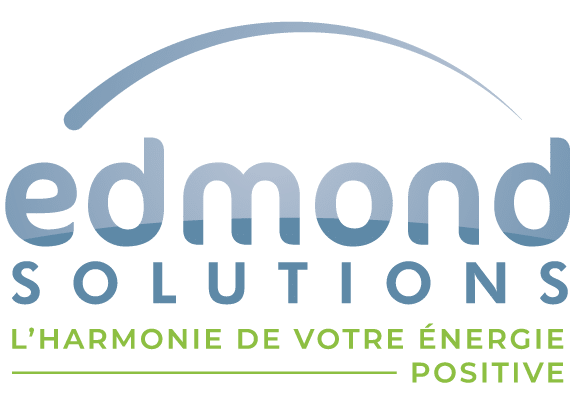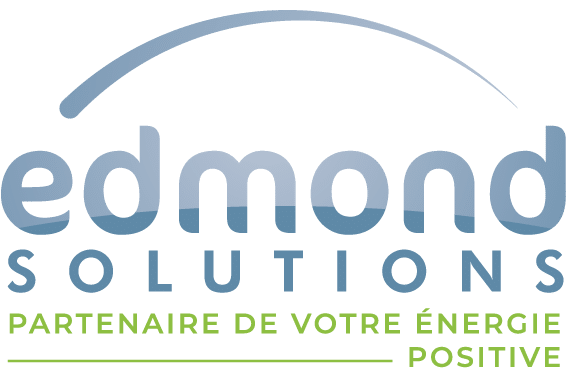Edmond Solutions: Solar Panel Installer
Are you interested in renewable energy and solar panel installations? Looking for professionals who can guide you through the process? You’re in the right place! Here, we explain everything you need to know: how solar panels work, their real advantages and limitations, what to expect in terms of cost and profitability, and the eco-friendly solutions available for your home or building. Our goal: to help you make the best choice for an installation perfectly suited to your needs and energy habits.
How do solar panels work?
Let’s start from the beginning: how do solar panels actually work?
As the name suggests, solar energy comes from… the sun! More precisely, it relies on the effect of sunlight on the photovoltaic cells that make up solar panels. When exposed to sunlight, these cells generate a movement of electrons between their positive and negative layers. This movement creates an electrical voltage.
This direct current is then converted into alternating current through an inverter. This allows you to power your home or business with electricity, measured through a meter. And if you don’t use all the energy you produce? The surplus can be stored in batteries or even fed back into the public electricity grid.
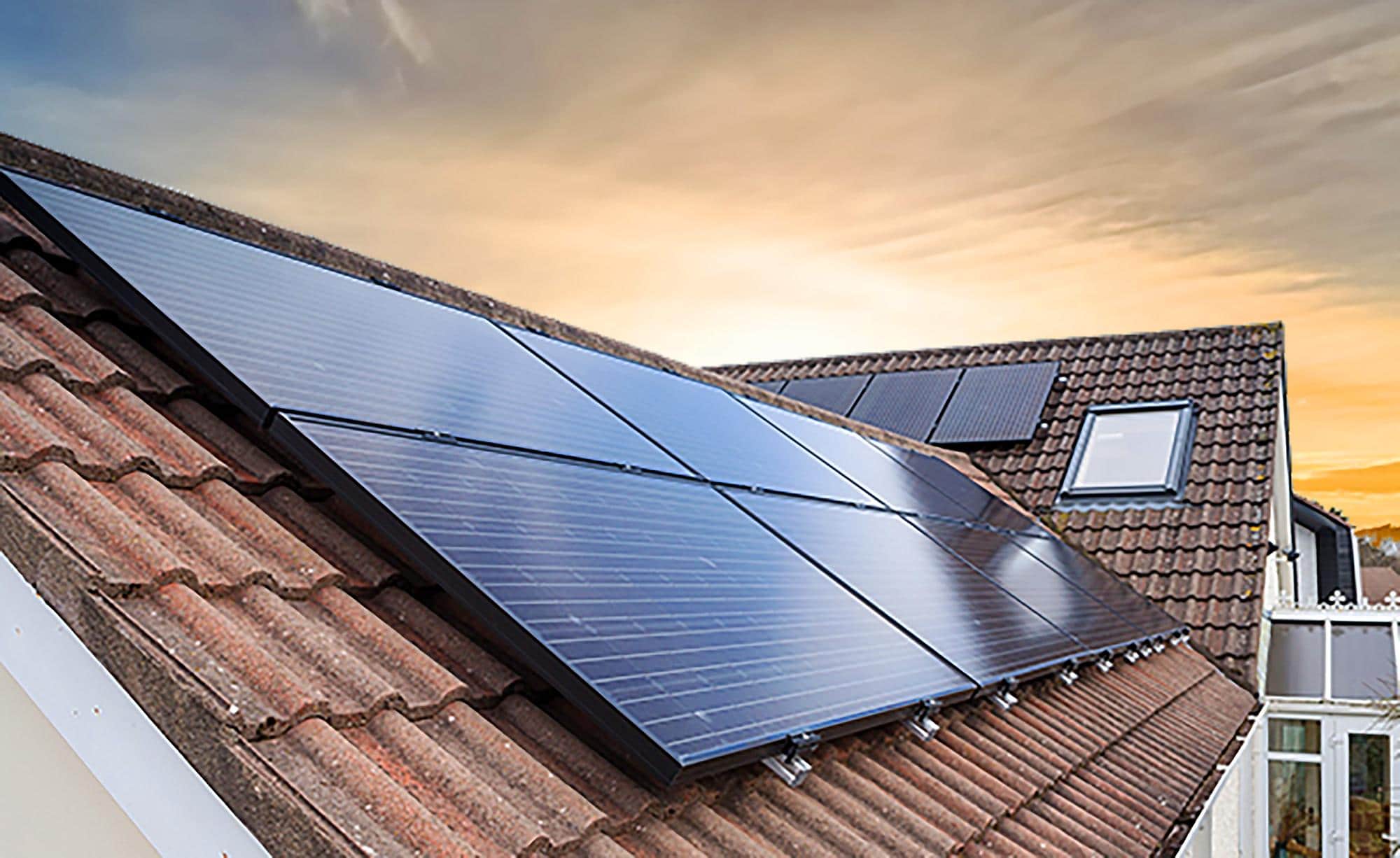
Pros and Cons
Installing solar panels isn’t a decision to be taken lightly. While installation can be quick and the benefits are numerous, it still represents a significant investment that requires careful thought. To help you see things more clearly, here’s an overview of the main advantages as well as the key limitations to keep in mind before getting started.
Financial savings
One of the main benefits of solar energy: lowering your electricity bills. By producing their own green energy, solar panel users see average savings of around 50%, and in optimized cases, this figure can reach up to 70%.
Sustainable and profitable investment
Installing solar panels requires a budget. However, the system usually pays for itself in 5 to 10 years, thanks to the savings on energy bills and government incentives. With equipment guaranteed for up to 40 years, you’ll enjoy long-term green energy at a lower cost.
Property value increase
Adding solar panels to your home or business also boosts property value. In case of resale, it’s a real asset for potential buyers, with the promise of long-term savings and a more attractive market value.
Additional income
With a self-consumption installation, you can also sell surplus electricity that you don’t use. Result: extra, secure income through a resale contract (EDF OA) valid for up to 20 years.
Environmental commitment
Choosing solar energy means choosing clean, sustainable, and locally produced energy. It helps reduce your carbon footprint while making a real difference for the planet.
Cons
The first limitation to consider is the high upfront investment cost, although this can be reduced through various financial incentives. Another point is aesthetics: solar panels may not appeal to everyone, though modern designs are becoming more discreet. Finally, the main drawback is their dependence on sunlight and weather conditions. On cloudy or unfavorable days, efficiency is reduced, which means a storage system or backup power source may be necessary.
The concept of self-consumption
Vous avez pris votre décision et fait le choix d’installer des panneaux photovoltaïques sur votre toiture.
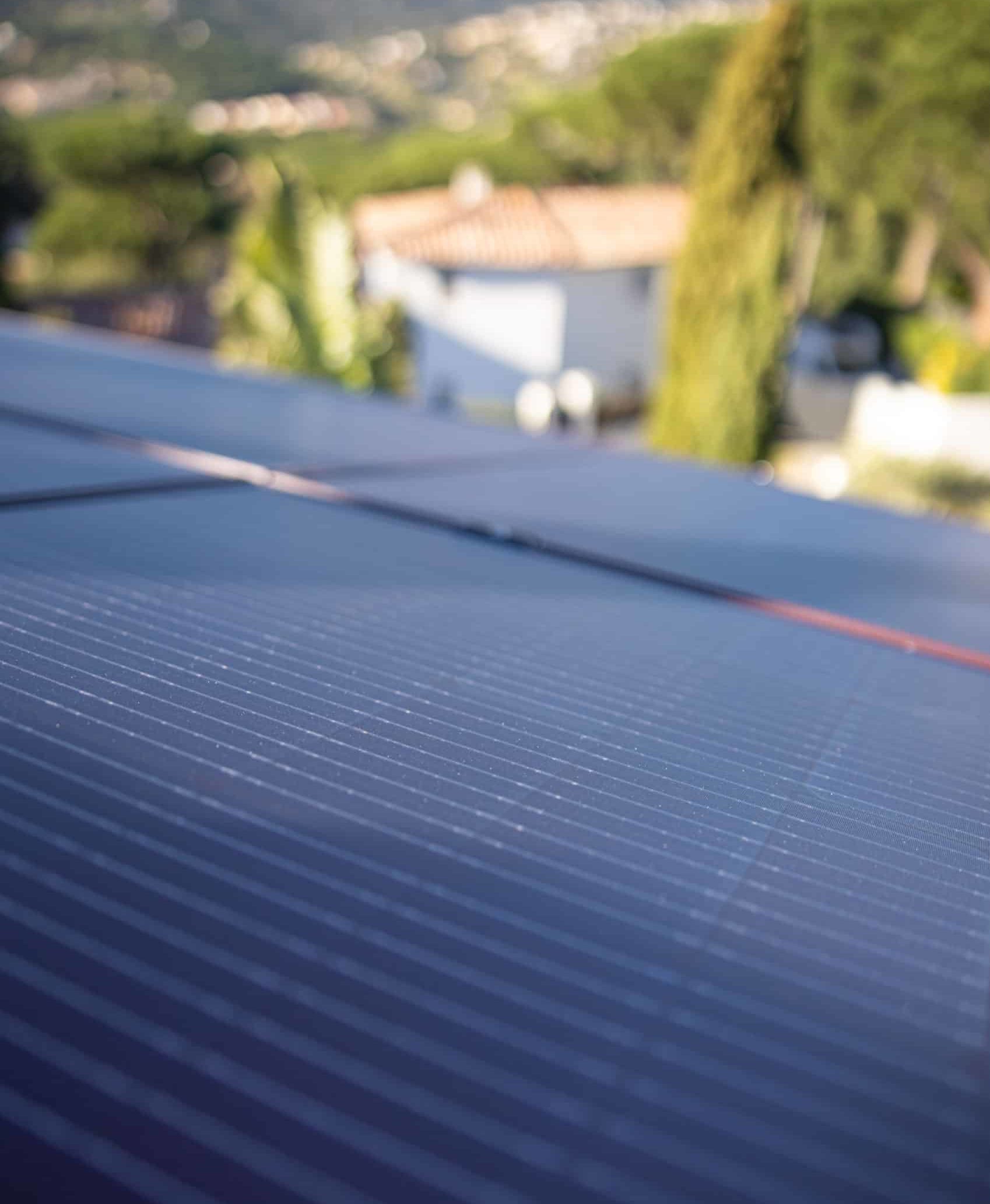
You’ve made your decision and chosen to install solar panels on your roof.
Now it’s time to decide how you want to use the green electricity you produce.
Self-consumption is today’s preferred option, but there are different solutions depending on your needs and profile:
- Self-consumption with resale. This option lets you use your own production to cover all or part of your energy needs. During periods of high sunlight, you can sell any surplus back to your supplier.
- Self-consumption with storage. Same principle, but here your surplus is stored in a physical or virtual battery so it can be used later, when sunlight is lower.
- Total resale. This option means selling all of the electricity produced. It is often preferred for large roof surfaces or buildings with low occupancy (warehouses, storage facilities, or second homes).
- Off-grid. In areas not connected to the grid, solar panels combined with autonomous storage solutions are an excellent alternative for accessing electricity.
Solar energy, an eco-friendly solution
The sun is an inexhaustible resource on a human scale
Solar energy is one of the most accessible solutions for producing clean, renewable electricity.
By choosing photovoltaic energy, you’re choosing an eco-friendly solution that reduces your CO2 emissions to zero while covering your energy needs.
And while manufacturing panels does require resources, their ecological footprint is “paid back” in just 3 years. With an average lifespan of 35 to 40 years and over 94% of components recyclable, photovoltaic panels fit perfectly into a sustainable and responsible approach.
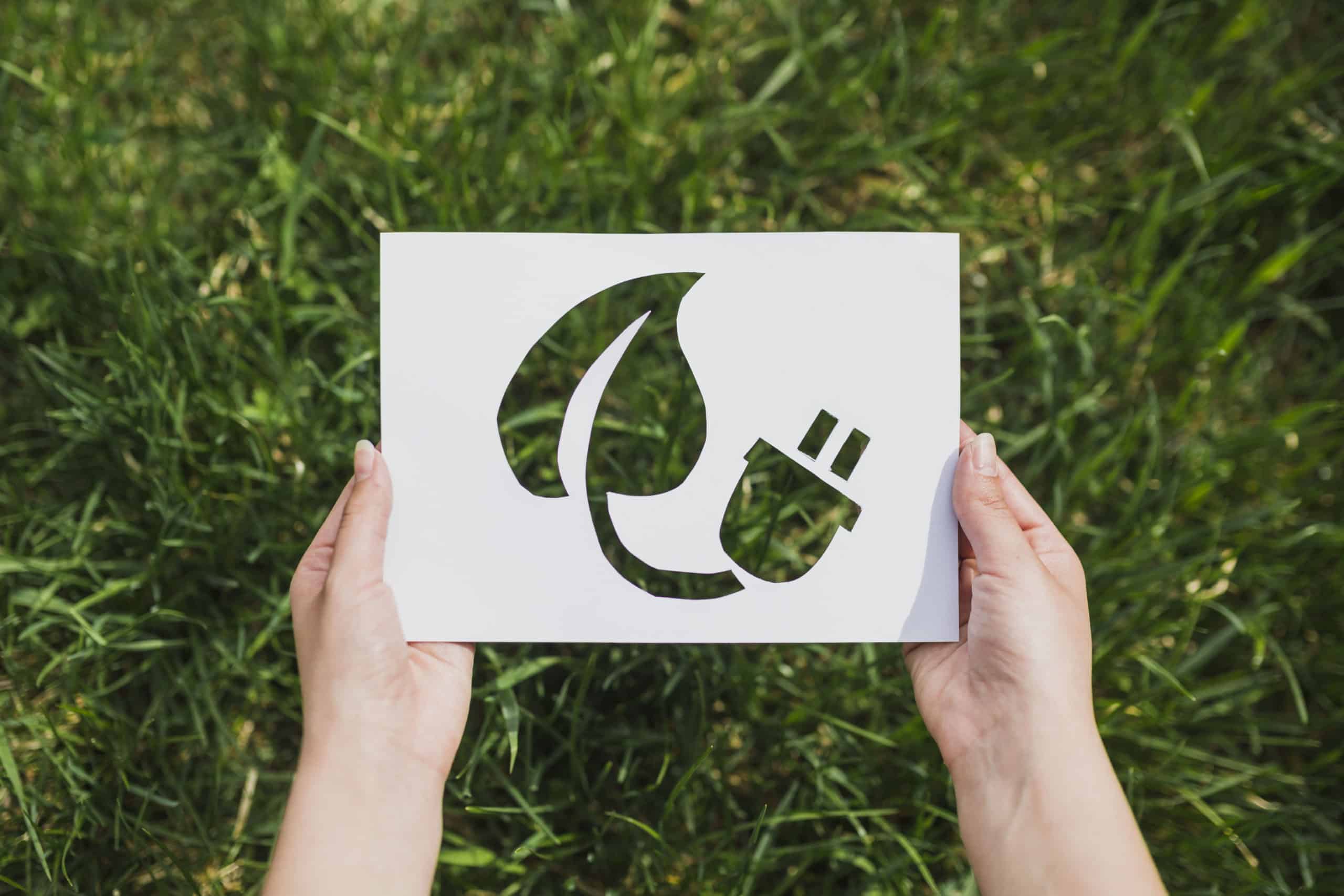
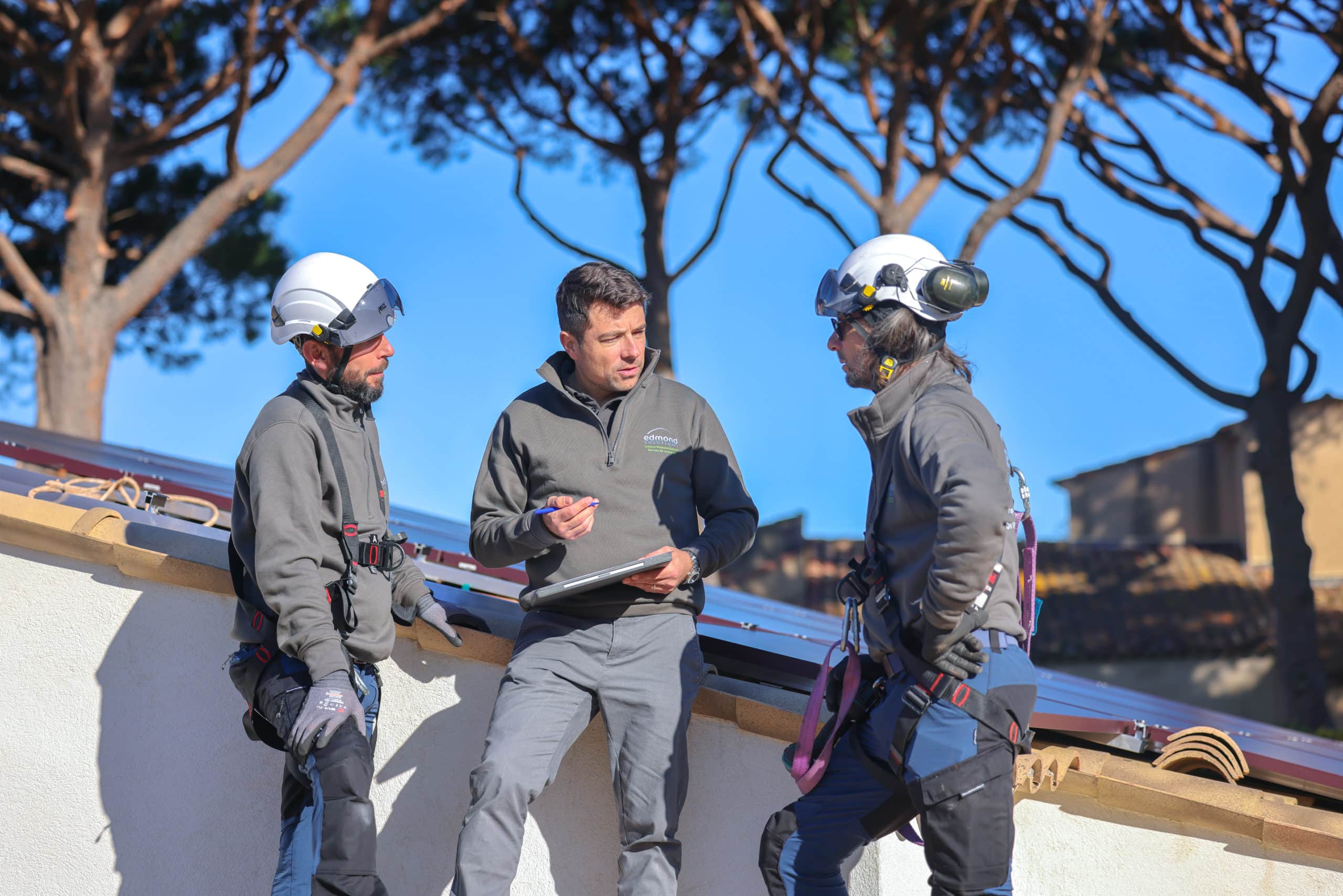
Edmond Solutions, your solar panel installer in the Var and surrounding areas
Based in Fréjus, Edmond Solutions is your installer for solar panels in the Var and the Alpes-Maritimes.
With more than 15 years of experience in renewable energy, we put our expertise at your service to ensure your solar project meets your exact needs. For individuals, businesses, and communities, our skilled teams — continuously trained in the latest industry innovations — support you at every stage: from feasibility studies and installation to financing, smart monitoring, and maintenance.
Choosing the right solar panel capacity for an efficient installation
How much power should you plan for your solar panels?
Selecting the capacity of your solar panels is essential — but not always straightforward. That’s why it’s crucial to call on a qualified professional who can precisely assess your needs.
To properly size your installation, you need to determine your energy requirements, your budget, the roof space available, and the level of sunlight in your region. In practice, the power of a panel is measured in watt-peak (Wp) or kilowatt-peak (kWp). On average, the actual energy production of a panel, which depends on sunlight, equals about 75% of its peak power. More concretely, a 3 kWp installation can generate between 2,400 and 3,600 kWh depending on your exposure.
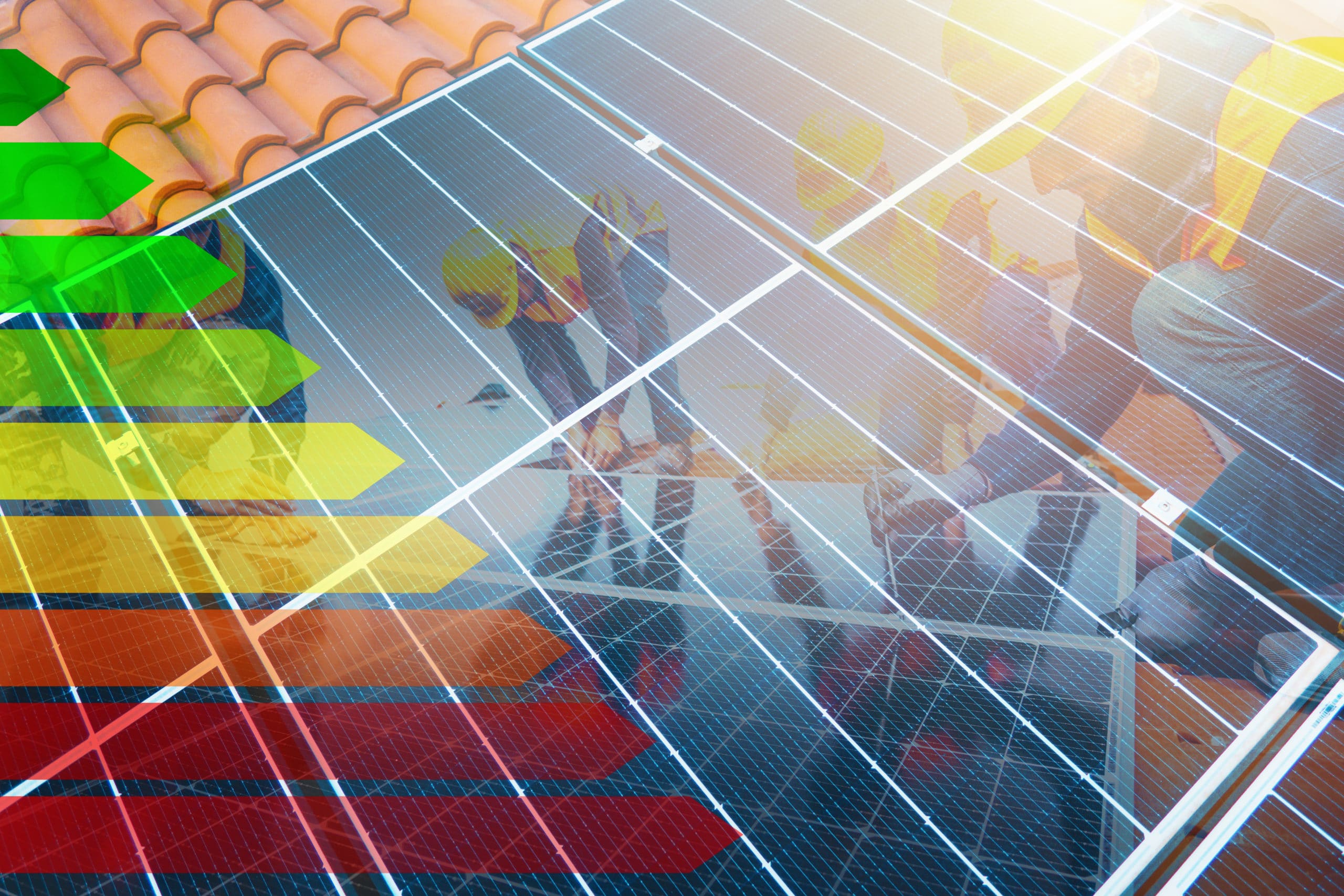
Solar panel prices: what cost? And what return?
The cost of a solar installation depends on several factors, especially power capacity
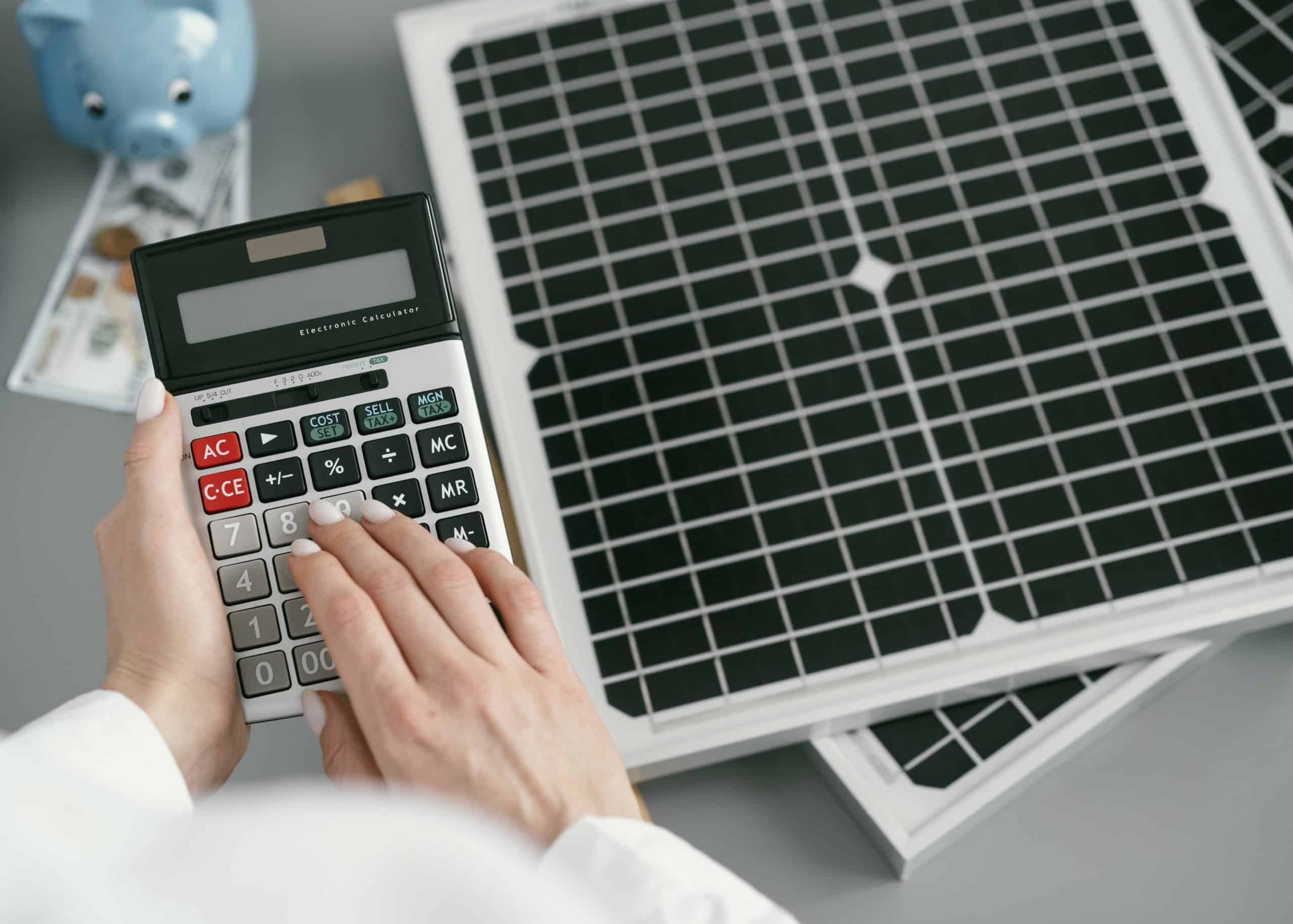
The price range can vary from a few thousand euros to several tens of thousands, depending on the project.
It’s a significant investment, of course, but one that quickly pays off thanks to savings on your electricity bill or income from selling surplus energy. There are also many ways to maximize the profitability of your solar panels, including installation incentives (self-consumption bonuses, reduced VAT…), the many financing options available (green loans, leasing, third-party investment, subscription), and smart energy management systems.
Solar panel kits
A simple and affordable backup solution to get started
Want to try self-consumption on a small scale? Solar panel kits might be the right solution for you.
Easy to install yourself and affordable, these kits offer great value for money and allow you to quickly save on your electricity bills. That said, it’s hard to imagine powering an entire home or reselling surplus energy with just these kits. They are best suited as a backup solution for occasional or limited use, but they cannot replace a full and long-term photovoltaic installation.
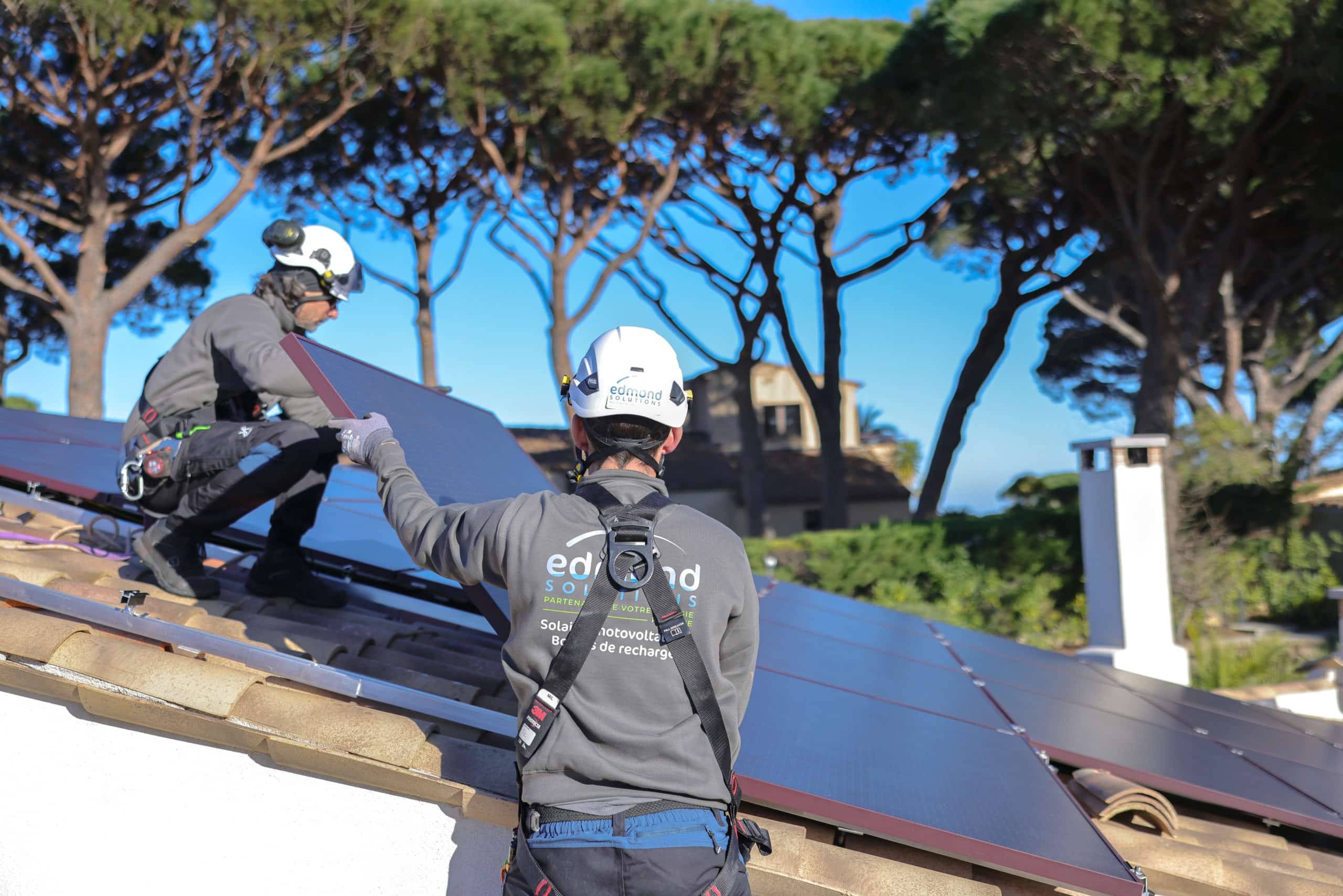
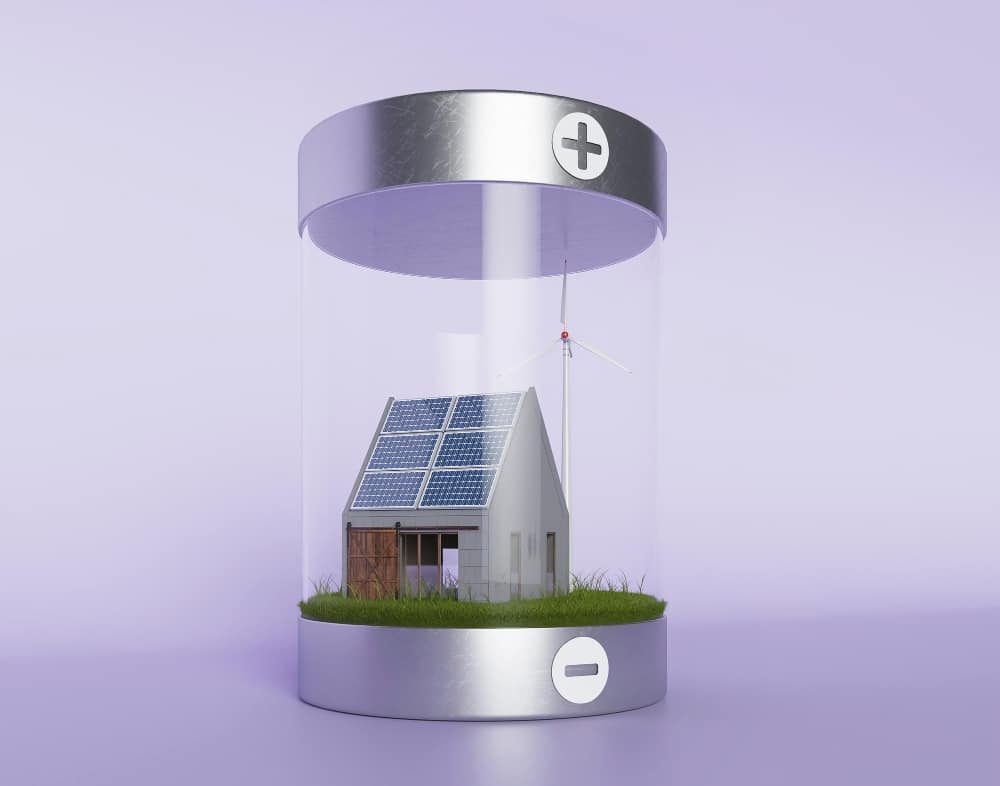
Virtual batteries for solar panels
Have you chosen a high-performance solar installation and want to maximize your independence? The “virtual solar battery” option is an innovative, space-saving alternative for your home.
Unlike a traditional battery installed in your home, the virtual battery stores your surplus electricity in the cloud. When your production exceeds your needs, the energy is injected into the public grid — but it is tracked and recorded. You can then use it later, during less sunny days or in winter. A practical, fully digital solution to manage your production and consumption!
Plug-and-play solar panels
A simple solar solution, easy to install with no major work required

As the name suggests, plug-and-play solar panels are ready-to-use panels that can be plugged directly into a standard power outlet.
They work the same way as traditional solar panels, but with one key difference: the energy produced is immediately used to power household appliances. This solution is limited in terms of capacity and does not allow electricity storage. In addition, proper orientation of the panels and basic maintenance are essential to ensure efficiency.
Plug-and-play solar panels remain a great option for those looking for an accessible solar solution that’s quick to set up, ideal for powering one or two specific devices.
Government incentives for your solar installation
And the essential certifications your installer must hold to access them
In a sector where scams unfortunately exist, it’s crucial to work with qualified and certified professionals for your solar panel installation.
The RGE QualiPV certification guarantees the expertise and reliability of professionals in the field of renewable energy. Most importantly, it is mandatory to access government financial incentives. These can make a real difference in your solar project budget: self-consumption bonuses, reduced VAT on equipment and labor, and more.
At Edmond Solutions, certified RGE QualiPV, our team assists you throughout this step: from paperwork and eligibility checks to maximizing the available incentives.
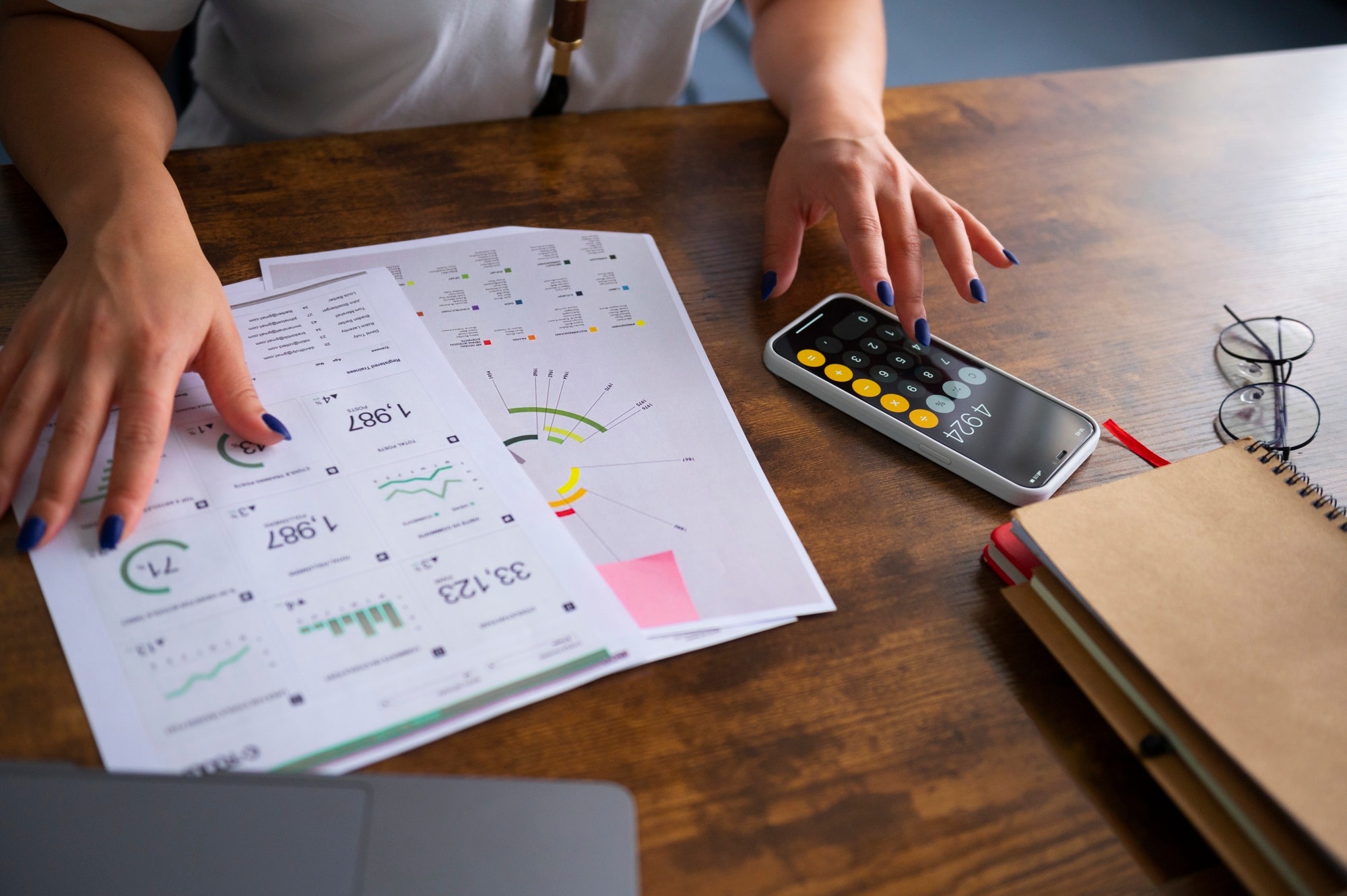
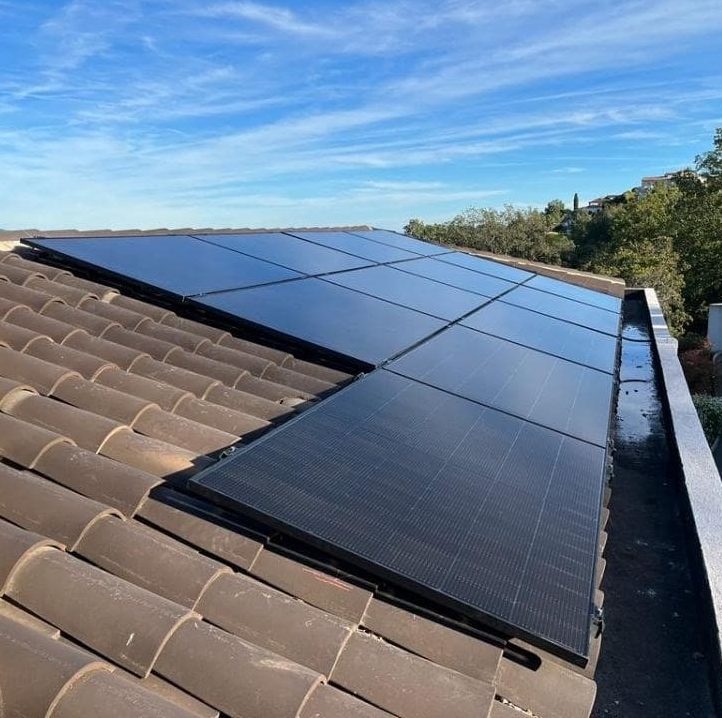
Solar Panel Installation: Our Projects
Residential rooftops, commercial buildings, public facilities, solar canopies… Our solar panel installations can be found throughout the Var and the Alpes-Maritimes. Each project is designed to combine energy efficiency, aesthetic integration, and a strong return on investment.
Ready to take the leap into solar energy? Contact us for a free, personalized study. Our local team supports you from A to Z to bring your solar installation project to life.
